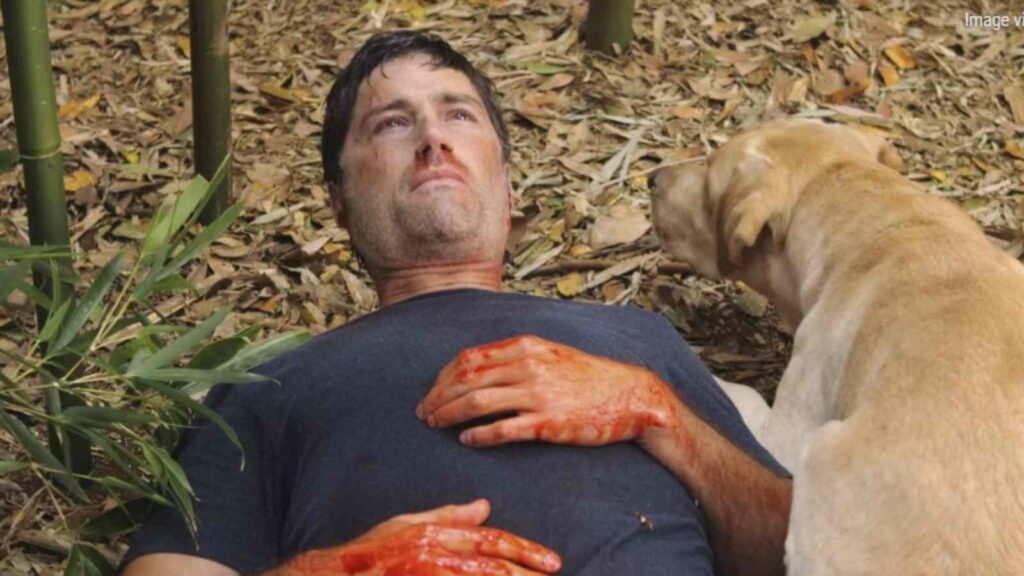The 2004 show ‘Lost‘ has proven to be one of the most captivating sci-fi shows of its time. Impressively, it has still retained the charm after over two decades with fans still trying to dissect its finale. It did not take the show much time to become a sci-fi phenomenon with a fervent fanbase, thanks to its unforgettable pilot episode. However, as it progressed, the show posed a seemingly endless array of questions that got even more complex with time.
Moreover, with an early final three-season renewal, fans also anticipated that most of the questions they had would be resolved — but that never happened. As the sixth and final season unfolded, viewers found themselves with more questions than answers. The finale has been polarizing, making the show land on lists of both the best and worst series endings. But if you look carefully, ‘Lost’s final season was less about providing answers and more about concluding the characters’ journeys through the show’s signature dual-timeline narrative.
‘Lost’ Tells A Story With An Intricate Web Of Flashbacks And Flash-Forwards

‘Lost‘ tells the story of Oceanic Flight 815’s survivors, who crash on a mysterious island in the South Pacific. This group finds itself in the need to band together in order to survive the tragedy they have been slapped with. As they try to navigate the island’s myriad secrets, the show also uses flashbacks and flash-forwards to offer deeper insights into the characters’ histories and their lives beyond the island.
As the story progresses, the survivors on the islands develop bonds as well as enmity amongst themselves with the circumstances constantly testing their limits. Initially, the flashbacks in ‘Lost‘ were crucial for understanding the passengers’s stories. Introduced in the Season 3 finale and continuing through Season 4, the flash-forwards also provided glimpses into the lives of those who managed to escape the island.
Season 5 continued this dual narrative with parts set in the island’s present and others in the 1970s, during the DHARMA Initiative’s heyday. The season concluded with Jack, played by Matthew Fox, and his team trying to prevent the incident that turned the island into an electromagnetic energy hub. This effort is an attempt to avert the plane crash that started it all.
Fast forward to the sixth season, the show begins in a muddled fashion, suggesting that Jack’s plan worked as we see him aboard a plane fighting some sort of turbulence but ultimately landing safely in Los Angeles. This idea is reinforced by a shot of the island submerged underwater. Yet, immediately after the opening credits, the survivors are shown back on the island in the present day.
Throughout most of the season, viewers were uncertain about the true nature of this new timeline, leaving them confused. However, despite a shaky start, the latter half of the final season brought greater clarity.
In case you missed it: “It Was Eating Its Way Through My Leg”: Tom Hanks Almost Lost His Life Due To Extreme Method Acting In His 2000 Film Which Made…
‘Lost’ Season Finale Leaves Viewers With Lingering Questions

One of the most divisive episodes of the season reveals some crucial aspects of the struggle between Jacob played by Mark Pellegrino, and The Man In Black played by Titus Welliver. Born as twins and raised by a woman known as Mother, played by guest star Allison Janney, the two are shown to be confined to the island. The Man In Black kills Mother, and in retaliation, Jacob throws him into the tunnel of light he was supposed to guard, thereby killing him. The twist shatters the notion of Jacob being purely good and The Man In Black being evil.
Moreover, Jack transforms into a man of faith from a man of science, which marks the completion of his character arc. Jack essentially sacrifices his future by accepting Jacob’s offer to become the island’s guardian. The flash-sideways also provide him with an opportunity to fulfill what he missed in life—being a father. Having David in that timeline allows Jack to prove he wasn’t like his own father.
David’s existence also explains Jack’s resistance to awakening, making it heartbreaking when Locke reveals he has no son. Jack’s journey comes full circle when he reunites with his father, Christian played by John Terry, at the church.
All these events make one thing amply clear — the passengers of Oceanic Flight 815 were not “dead all this time.” The flash-sideways reality taking place in the afterlife does not imply they perished in the crash or that everything was a dream, as might have been assumed by many viewers. While it is safe to conclude that the events on the island were real,there still are some questions haunting the viewers.
Why were they all together in the end? It is likely that all of them had friends and family they’d prefer spending eternity with over a random doctor from seat 23B. However, that was the essence of ‘Lost‘. Dr. Jack Shephard was no longer a fleeting encounter in their lives. Their shared trauma on the island became the most profound, meaningful period of their lives, a time when they learned and grew the most.
Regardless of opinions on the overall resolution, the final church scene, layered with Michael Giacchino’s score, struck the emotional chords a finale should evoke. While fans expected ‘Lost’s final season to resolve all the mysteries, it ultimately offered a metaphysical exploration of closure. Initially seeming inconsequential, the flash-sideways storylines built the foundation for the series’ conclusion.
You might also like to read:





